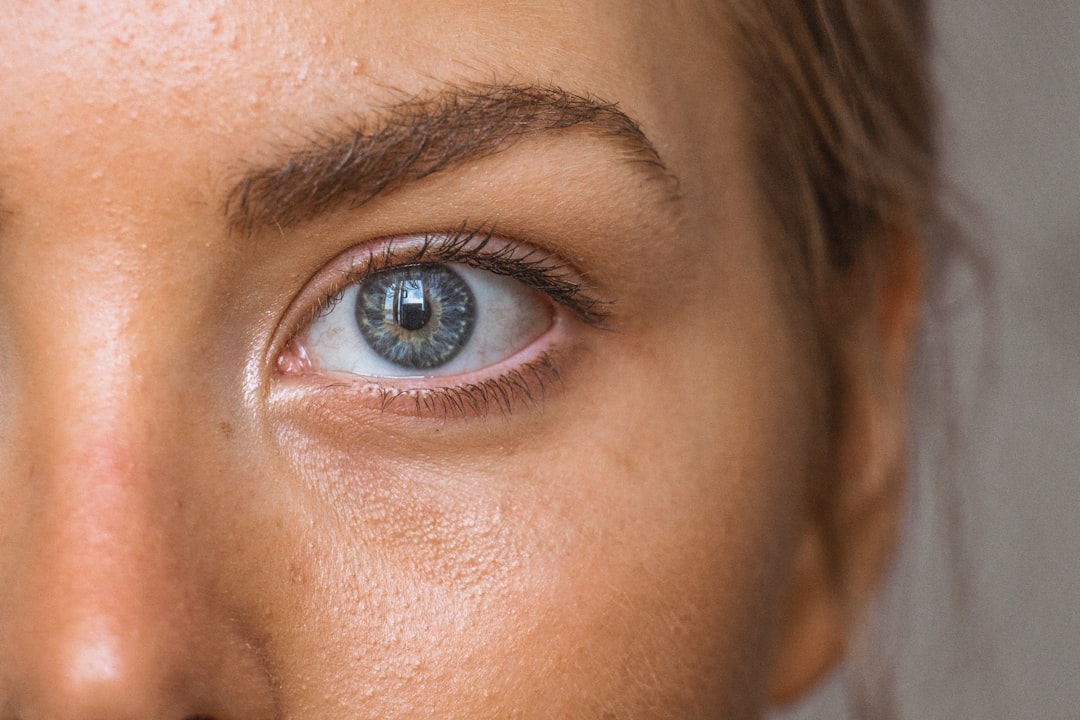Laser hair removal has become a popular choice for those seeking a long-term solution to unwanted hair. This method utilizes concentrated beams of light to target and destroy hair follicles, effectively reducing hair growth over time.
The laser emits a specific wavelength of light that is absorbed by the pigment in the hair. This absorption generates heat, which damages the follicle and inhibits future hair growth. Unlike traditional methods such as shaving or waxing, laser hair removal offers a more permanent solution, making it an attractive alternative for many.
When you decide to undergo laser hair removal, you should be aware that multiple sessions are typically required to achieve optimal results. Hair grows in cycles, and the laser is most effective during the active growth phase. Therefore, you may need to schedule several appointments spaced weeks apart to target all the hair effectively.
Additionally, the effectiveness of the treatment can vary based on your hair color, skin type, and the area being treated. Understanding these factors can help you set realistic expectations and prepare for the journey ahead.
Key Takeaways
- Laser hair removal uses concentrated light to target and destroy hair follicles, resulting in long-term hair reduction.
- Potential side effects of laser hair removal include redness, swelling, and skin irritation, which are usually temporary.
- Skin irritation from laser hair removal can be caused by factors such as skin type, treatment area, and improper aftercare.
- Factors that contribute to skin irritation during laser hair removal include sun exposure, using harsh skincare products, and not following pre and post-treatment instructions.
- To minimize skin irritation from laser hair removal, it is important to avoid sun exposure, use gentle skincare products, and follow aftercare instructions provided by the technician.
Potential Side Effects of Laser Hair Removal
While laser hair removal is generally considered safe, it is not without its potential side effects. As with any cosmetic procedure, you may experience some adverse reactions following treatment. Common side effects include redness, swelling, and mild discomfort in the treated area.
However, it’s crucial to be aware of these possibilities so that you can manage your expectations and prepare for any discomfort that may arise. In rare cases, more severe side effects can occur.
You might experience blistering, changes in skin pigmentation, or even scarring. These complications are more likely if you have darker skin or if the procedure is performed by an inexperienced technician. Therefore, it’s essential to choose a qualified practitioner who can assess your skin type and tailor the treatment accordingly.
By understanding the potential side effects, you can make an informed decision about whether laser hair removal is right for you.
Skin Irritation and Laser Hair Removal

Skin irritation is one of the most common reactions following laser hair removal. After the procedure, your skin may feel sensitive or tender, similar to a mild sunburn. This irritation occurs because the laser targets not only the hair follicles but also the surrounding skin tissue.
The heat generated during the treatment can lead to inflammation and discomfort, which is why post-treatment care is crucial for minimizing these effects. You may notice that your skin appears red or swollen immediately after the session. This reaction is typically temporary and should resolve within a few days.
However, if you have sensitive skin or are prone to irritation, you might find that your symptoms linger longer than expected. Understanding this aspect of laser hair removal can help you prepare for what to expect and how to care for your skin afterward. (Source: American Academy of Dermatology)
Factors that Contribute to Skin Irritation
| Factor | Effect on Skin Irritation |
|---|---|
| Harsh chemicals | Can cause redness, itching, and inflammation |
| Frequent washing | Can strip the skin of natural oils, leading to dryness and irritation |
| Allergens | Can trigger allergic reactions and skin irritation |
| Friction | Can cause chafing and irritation, especially in sensitive areas |
Several factors can contribute to the level of skin irritation you experience after laser hair removal. One significant factor is your skin type; individuals with sensitive or reactive skin may be more prone to irritation than those with more resilient skin. Additionally, the area being treated plays a role; areas with thinner skin, such as the face or bikini line, may react more strongly than areas with thicker skin.
Another contributing factor is the type of laser used during the procedure. Different lasers have varying wavelengths and energy levels, which can affect how your skin responds. For instance, some lasers are designed specifically for certain skin types or hair colors, and using an inappropriate laser can increase the risk of irritation.
Furthermore, pre-treatment skincare routines can also impact your skin’s sensitivity; using harsh products or undergoing other treatments close to your appointment may exacerbate irritation.
How to Minimize Skin Irritation from Laser Hair Removal
To minimize skin irritation from laser hair removal, there are several proactive steps you can take before and after your treatment. First and foremost, consult with your practitioner about your skin type and any concerns you may have. They can recommend specific pre-treatment care tailored to your needs, such as avoiding sun exposure or certain skincare products in the days leading up to your appointment.
After your treatment, it’s essential to follow a gentle skincare routine. Opt for mild cleansers and avoid exfoliating products for at least a week post-treatment. Keeping your skin moisturized can also help soothe irritation; look for fragrance-free lotions or gels that contain calming ingredients like aloe vera or chamomile.
Additionally, applying a cold compress to the treated area can provide immediate relief from discomfort and reduce inflammation.
Post-Treatment Care for Skin Irritation
Post-treatment care is vital in managing any skin irritation you may experience after laser hair removal. After your session, it’s advisable to avoid hot showers, saunas, or intense workouts for at least 24 hours, as heat can exacerbate irritation. Instead, opt for cool showers and gentle activities that won’t cause excessive sweating or friction on the treated area.
You should also be cautious about sun exposure following your treatment. Your skin will be more sensitive to UV rays, increasing the risk of sunburn or pigmentation changes. Wearing broad-spectrum sunscreen with a high SPF is crucial if you need to go outside.
Additionally, consider wearing protective clothing or seeking shade whenever possible to shield your skin from harmful rays.
When to Seek Medical Attention for Skin Irritation
While most side effects of laser hair removal are mild and temporary, there are instances when you should seek medical attention. If you notice severe swelling, blistering, or signs of infection such as pus or increased redness around the treated area, it’s essential to consult a healthcare professional promptly. These symptoms could indicate an adverse reaction that requires medical intervention.
Additionally, if your irritation persists beyond a week or worsens instead of improving, don’t hesitate to reach out to your practitioner or dermatologist. They can assess your condition and recommend appropriate treatments or adjustments to your post-care routine. Being proactive about any concerning symptoms will help ensure that you maintain healthy skin throughout your hair removal journey.
Alternative Hair Removal Methods to Consider
If you find that laser hair removal isn’t suitable for you due to potential side effects or other concerns, there are several alternative hair removal methods worth considering. Traditional options like shaving and waxing remain popular choices for many individuals seeking quick results without long-term commitments. Shaving is convenient and can be done at home; however, it requires frequent maintenance as hair regrows quickly.
Waxing offers longer-lasting results than shaving but can be painful and may cause irritation for some people. If you’re looking for something less invasive than laser treatments but still effective in reducing hair growth over time, consider options like depilatory creams or electrolysis. Depilatory creams dissolve hair at the surface level but should be used cautiously due to potential allergic reactions.
Ultimately, choosing the right hair removal method depends on your individual preferences and skin sensitivity. By exploring various options and understanding their pros and cons, you can make an informed decision that aligns with your needs and lifestyle. Whether you opt for laser hair removal or another method entirely, prioritizing your skin’s health and comfort will always lead you toward a more satisfying experience in managing unwanted hair.
If you are considering laser hair removal, you may be wondering if it causes any side effects. According to a recent article on inlaserhairremoval.com, laser hair removal is generally safe and effective, but some people may experience temporary redness or irritation after treatment. It is important to consult with a qualified professional to discuss any potential risks and benefits before undergoing the procedure.
FAQs
What is laser hair removal?
Laser hair removal is a cosmetic procedure that uses a concentrated beam of light (laser) to remove unwanted hair. The light is absorbed by the pigment in the hair follicles, which damages the follicle and inhibits future hair growth.
Does laser hair removal cause pain?
Laser hair removal may cause some discomfort, often described as a snapping or stinging sensation. However, most people find the discomfort to be tolerable. Some areas of the body may be more sensitive than others.
Does laser hair removal cause skin damage?
When performed by a qualified and experienced professional, laser hair removal is generally safe and does not cause skin damage. However, there is a small risk of skin irritation, redness, or changes in skin pigmentation. It is important to follow pre- and post-treatment care instructions to minimize these risks.
Does laser hair removal cause permanent hair removal?
Laser hair removal can lead to long-term hair reduction, but it is not always permanent. Some hair may eventually grow back, but it is often finer and lighter in color. Multiple treatment sessions are usually required to achieve the best results.
Does laser hair removal cause ingrown hairs?
Laser hair removal can actually help reduce the occurrence of ingrown hairs by targeting the hair follicles and preventing new hair growth. It is often recommended for individuals who struggle with ingrown hairs from shaving or waxing.







